15 Easy & Effective Natural Remedies to treat Cradle Cap
Published: November 29, 2023 | Last Updated on: November 29, 2023 | by Hema
Cradle cap is common in infants, and nothing to worry about! Here are 15 easy and effective natural remedies to treat Cradle Cap in babies.
Jump To hide What is Cradle Cap? What Causes Cradle Cap? 15 Natural Remedies to Treat Cradle Cap 1. Soft Brush 2. Soft Washcloth 3. Oil Treatment 4. Mild Shampoo 5. Moisturizer 6. Baking Soda 7. Humidifier 8. Essential Oils 9. Breast Milk 10. Chamomile Tea 11. Shea Butter 12. Apple Cider Vinegar 13. Oatmeal 14. Aloe Gel 15. Nutritious Diet Things to remember: References: Buy Healthy Nutritious Baby, Toddler food made by our own Doctor Mom !When your newborn arrives, you can’t help but marvel over how perfect he is. Those tiny fingers and toes, that little mouth – everything is so cute and perfect!
However, once you bring him home, you start noticing little things and start worrying. For instance. what is that patch of crusty skin on your baby’s scalp? Is something wrong with my perfect little baby?

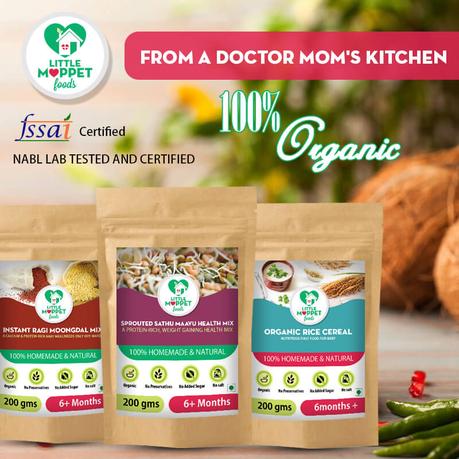
Relax! That crusty skin is just cradle cap, and it doesn’t mean that your little munchkin is anything short of perfect. Here’s everything you need to know about cradle cap in babies, and what you can do about it.
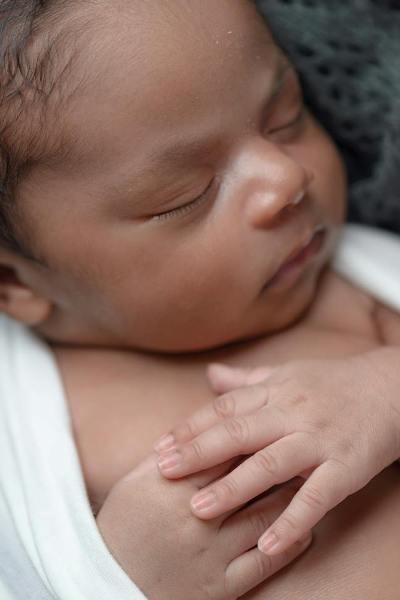
What is Cradle Cap?
Cradle cap is a skin condition also known as infantile seborrheic dermatitis. While seborrheic dermatitis appears as dandruff in adolescents and adults, it appears as thick, crusty or flaky skin in babies.
Cradle cap is most commonly found on the scalp, which is why it has the name ‘cap’, but it can also occur on the face, forehead, or anywhere the skin folds or creases, like behind the ears, armpits or the diaper region.
Cradle cap can occur anywhere from 3 weeks onward, and most babies overcome it by their first birthday. Some babies may show symptoms up to the age of four years, although this is rare.
What Causes Cradle Cap?
The exact cause of cradle cap is not known, although experts think there may be a few factors that could cause it:
- Hormones passed on from the mother, which cause an overproduction of oil in the hair follicles
- A yeast fungus called malassezia, found when there is excess sebum
- Extremely dry weather
Contrary to what many people believe, cradle cap is not caused by poor hygiene, nor is it caused by allergies. Cradle cap is not contagious or dangerous at all, and it usually clears off by itself. Cradle cap often show up like these:
- Patches of thick crusty or scaly skin on the scalp
- Skin flakes that look like dandruff
- Light redness
The scales may have an oily look to them and may look white or yellow. Sometimes, the skin under the scales may appear pink or reddish if your baby has a light complexion.
Cradle cap is sometimes confused with infantile eczema or atopic dermatitis, but these are completely different medical conditions. Atopic dermatitis and infantile eczema often cause itching, while cradle cap does not.
In fact, cradle cap doesn’t bother babies in the least – although the same cannot be said about parents! While this is something that clears up on its own, you can hasten the process with a few natural remedies.
15 Natural Remedies to Treat Cradle Cap
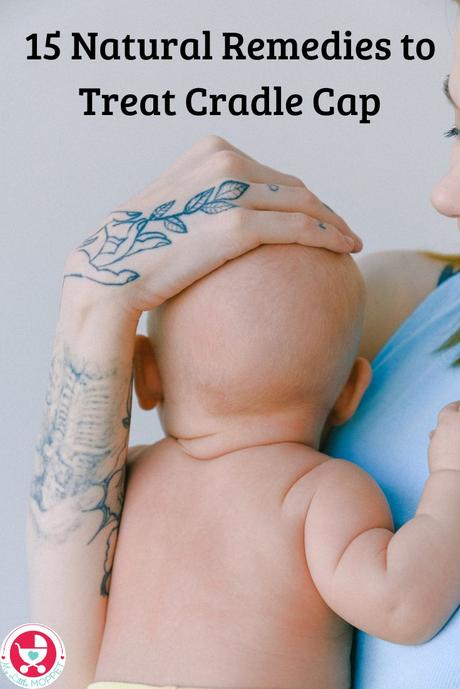
1. Soft Brush
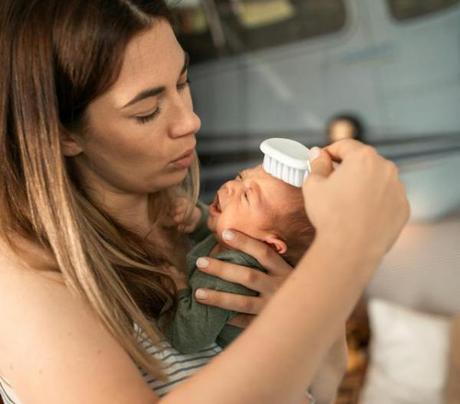
The easiest way to get rid of cradle cap is to brush using a soft baby brush. You can do this either dry or after a wash. Start by gently massaging baby’s scalp with your fingers – make sure to use your finger pads and not your nails. This will help to loosen the scales.
Then take the brush and brush gently in one direction, moving slowly so you release the flakes as you move. You can do this once a day, but stop if the scalp seems to be getting irritated. Some babies also like the brushing motion as it soothes them and lulls them to sleep.
2. Soft Washcloth

An alternative to using a brush is to use a washcloth. Choose a soft washcloth that’s made specifically for babies, so it’s not too rough on baby’s delicate skin.
Wet the washcloth with warm water and squeeze out any excess. There are two ways you can now use this damp washcloth. You can rub baby’s scalp gently to loosen the scales, ensuring you don’t scrub too hard. Or, you can use it as a warm compress on the scalp, and then follow it up with a soft brush. The warmth and dampness will make the scales easier to remove.
3. Oil Treatment
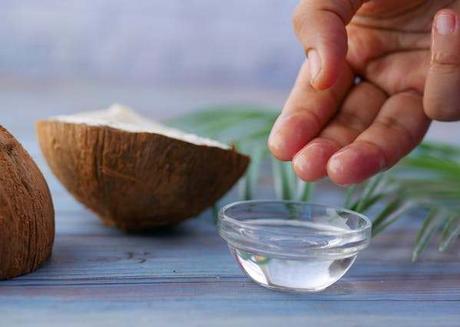
It is common to give babies an oil massage, especially in the early days, since it has many benefits. One of them is that oil helps in the removal of cradle cap. Use a baby-safe oil like coconut oil and always do a patch test first.
Take a few drops of the oil and gently massage it over the affected areas. Leave it on for about 15 minutes – this should soften the scales and make them easier to remove. Then brush it out with a soft brush and wash out the remaining oil with a mild shampoo.
4. Mild Shampoo
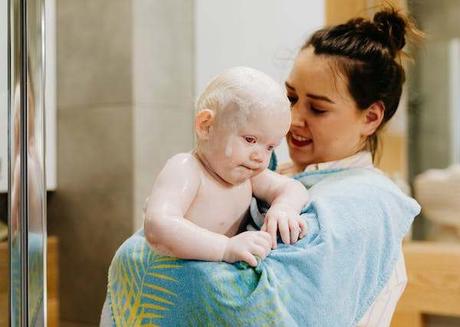
A baby shampoo also works well to get rid of cradle cap. For mild cases, regular baby shampoo will work, but if your baby’s cradle cap is more severe, you may need to get a baby dandruff shampoo. Do not use adult dandruff shampoos on babies – they can be too harsh.
When applying shampoo, gently massage the baby’s scalp, so that the scales soften and loosen up. You can also use a washcloth at this stage to gently rub the shampoo in. Then rinse off with water and you’ll find that most of the cradle cap has cleared up. Try to stick to shampooing not more than thrice a week.
5. Moisturizer
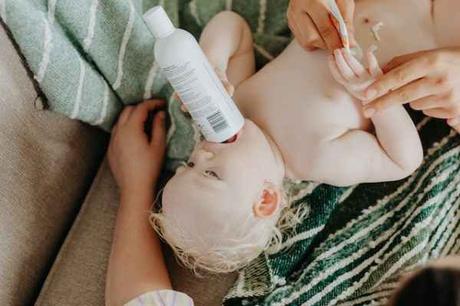
If your baby’s cradle cap is due to extreme dryness, applying moisture will help fix the problem as well as prevent it from reoccurring. Use a gentle natural baby moisturizer and apply it on baby’s scalp right after a bath, while the skin is still a little damp. This will lock the moisture in and soften the scales, making them easier to get rid of with a brush.
6. Baking Soda
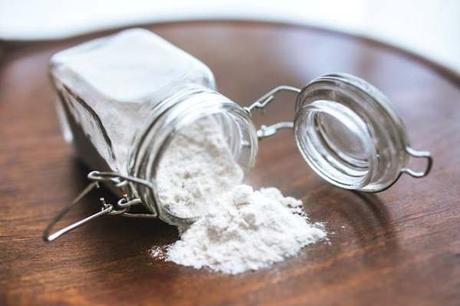
For an older baby or a toddler, you can try a baking soda hack. Mix some baking soda in water to create a thin paste and apply it over the scalp. Let it rest for a minute and then wash off with a mild baby shampoo.
Baking soda works because its alkaline pH neutralizes the scalp’s pH. Please do not try this with newborn babies or young infants, and it’s best not to combine this remedy with other remedies like oil treatments.
7. Humidifier
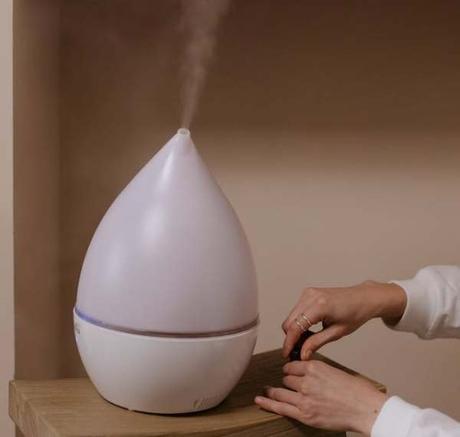
As mentioned earlier, dryness can exacerbate cradle cap, especially dryness in the air. Using humidifiers helps add some moisture to the air, which decreases skin dryness. Some babies have cradle cap due to excess sebum production, and humidifiers help fix this problem. This is particularly true if you use an air conditioner or heater in the room.
8. Essential Oils
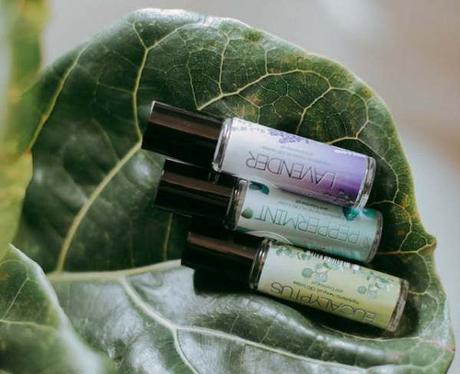
Essential oils are used for many home remedies, and they’re a great way to avoid the use of chemicals. However, they are quite potent and have to be used with care on small babies. Always use an essential oil in combination with a carrier oil like coconut oil, and never use an undiluted essential oil on young children.
The common essential oils for cradle cap are lemon oil and geranium oil. Tea tree oil, which is used as a dandruff remedy may also be used. Mix 2 drops of essential oil in 2 tablespoons of carrier oil and massage it on baby’s scalp. Leave it on for a few minutes and then brush off the flakes. Follow up with a mild shampoo. Please remember that this is to be used on babies older than 6 months and always consult your doctor first.
9. Breast Milk
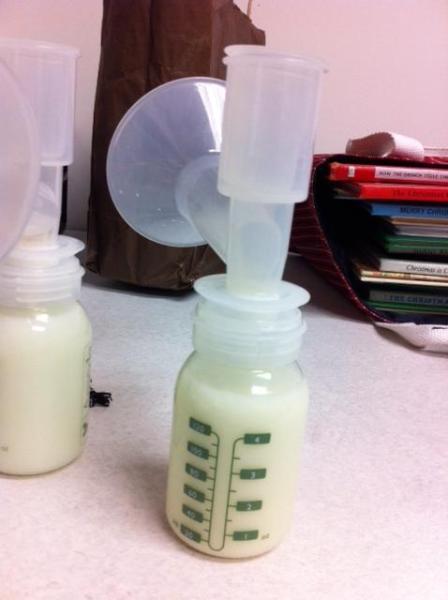
Breast milk has many uses, and it is often considered a magic pill for multiple baby problems. It’s the same with cradle cap – breast milk has long been used as a home remedy for this condition. It is believed that breast milk has many antibodies and nutrients that can soothe sensitive skin.
Simply apply a few drops of breast milk on your baby’s scalp and massage it gently. Leave it on for a few minutes and then brush it off with a soft baby brush.
10. Chamomile Tea
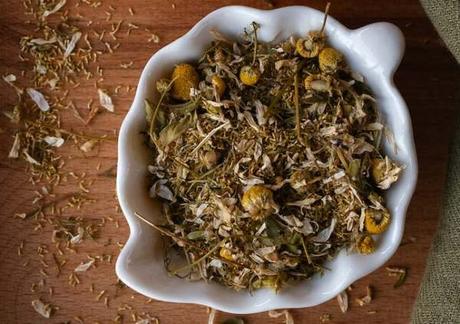
Chamomile tea is generally known for its calming effects that help induce sleep, and these benefits extend to healing cradle cap in babies. The best way to use chamomile tea for cradle cap is to create a rinse of 2 cups of cooled chamomile tea with a tablespoon of coconut oil.
Gently massage some mild shampoo on baby’s scalp and leave it on for 15 minutes. Use a soft brush to release the flakes on the scalp and then rinse it out with the chamomile tea rinse. Make sure it doesn’t get into baby’s eyes. Follow up with plain water – you can try this remedy 2-3 times a week.
11. Shea Butter
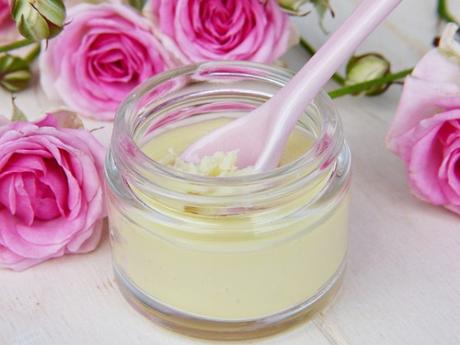
Shea butter is a common ingredient in natural moisturizers, making it a great remedy for cradle cap too. Simply apply some shea butter on the affected area and leave it on the scalp for 15-20 minutes. Use a soft brush to brush off the loosened scales and then wipe off the excess shea butter with a soft washcloth. Follow up with a good rinse so you get rid of any residue.
12. Apple Cider Vinegar
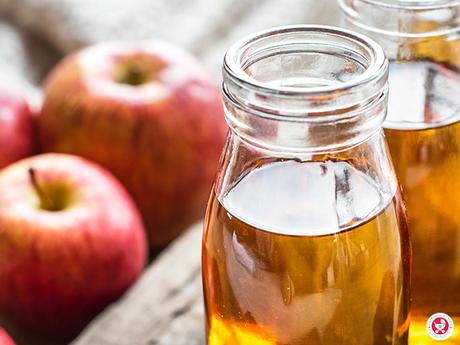
Apple cider vinegar is often used to treat dandruff in adults, and it can also be used on babies for cradle cap. However, ACV is still rather strong, so it’s best to reserve it for older babies and toddlers. The antifungal nature of ACV will help get rid of any fungal infection that may be causing the cradle cap.
Dilute 2 tablespoons of apple cider vinegar with a quarter cup of water and pour it over baby’s scalp. Take care that nothing gets into your baby’s eyes. Massage baby’s scalp gently and let it sit for 10 minutes. Rinse out with water and follow up with a mild shampoo if you like.
13. Oatmeal
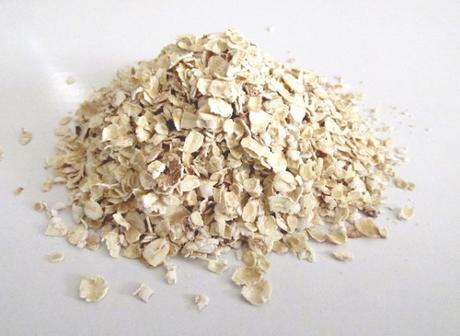
You’ll have noticed that a lot of the remedies to treat cradle cap deals with scrubbing out the flakes, after softening them with something first. Oatmeal performs the same function, acting as a natural scrub.
Grind oats into a fine powder and mix with enough water to make a thick paste. Apply it all over the affected area, massaging it gently. Let it sit for 5 minutes and then wash off with water.
14. Aloe Gel
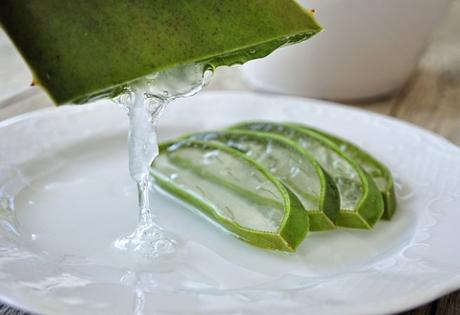
Aloe vera is a great alternative to a natural moisturizer, and is quite soothing for skin, considering it is often used to treat sunburn. When using aloe vera gel for cradle cap, be sure to use 100% natural and freshly harvested aloe vera gel, instead of store-bought versions.
Simply apply some fresh aloe vera gel on baby’s scalp and let it sit for a few minutes. Make sure not to leave it for too long since aloe vera has a cooling effect, and it can make baby uncomfortable or ill. Wash it off with a mild shampoo and rinse thoroughly to get rid of any residue.
15. Nutritious Diet

Sometimes the solution to baby’s cradle cap may lie on the breastfeeding Mommy’s plate! Vitamin D, Vitamin B and Omega-3 fats are important for skin health, and can help in keeping cradle cap at bay. Some foods to include are flax seeds, chia seeds, fish and egg yolks. You can also take a supplement if you’re vegetarian or vegan.
Things to remember:
- When trying out oil treatments, avoid peanut oil since it can trigger allergies
- Always use soaps or shampoos specifically meant for babies
- Don’t use your fingers to pick at the scales – it can cause infection
- Always be gentle, whether brushing, massaging or scrubbing
- Speak to your doctor before starting any new remedy for your baby
Sometimes natural remedies may not be enough, and in such cases your doctor may recommend a medicated shampoo or a corticosteroid cream. Take your baby to the doctor if you notice any of these symptoms.
- Any leaking fluid or bleeding
- Swelling of the skin
- Red, inflamed skin
- Unpleasant smells from the scaly patch
- A warm feeling in the affected area
- Spreading over a larger area of the body
- Persistent cradle cap even after weeks of treatment
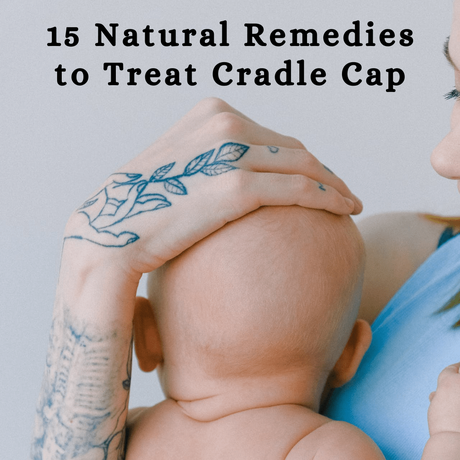
References:
- American Academy of Pediatrics
- American Academy of Dermatology
- American Academy of Family Physicians
- NHS UK
Buy Healthy Nutritious Baby, Toddler food made by our own Doctor Mom !
Shop now!You may also like
- Top 10 Effective Home Remedies for Diarrhea in…
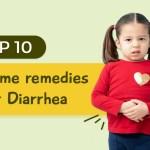
- Effective Toddler Indigestion Home Remedies: Natural…

- Top 17 Effective Home Remedies for Stomach pain in…
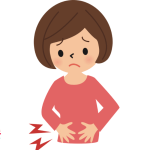
- 8 Effective Home Remedies for Bug Bites
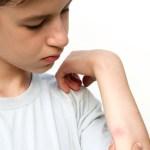
- 3 Effective DIY Cough and Cold Remedies for Kids

- 15 Safe and Effective Home Remedies for Dandruff in Kids
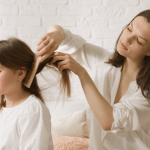
Filed Under: Baby, Baby health
